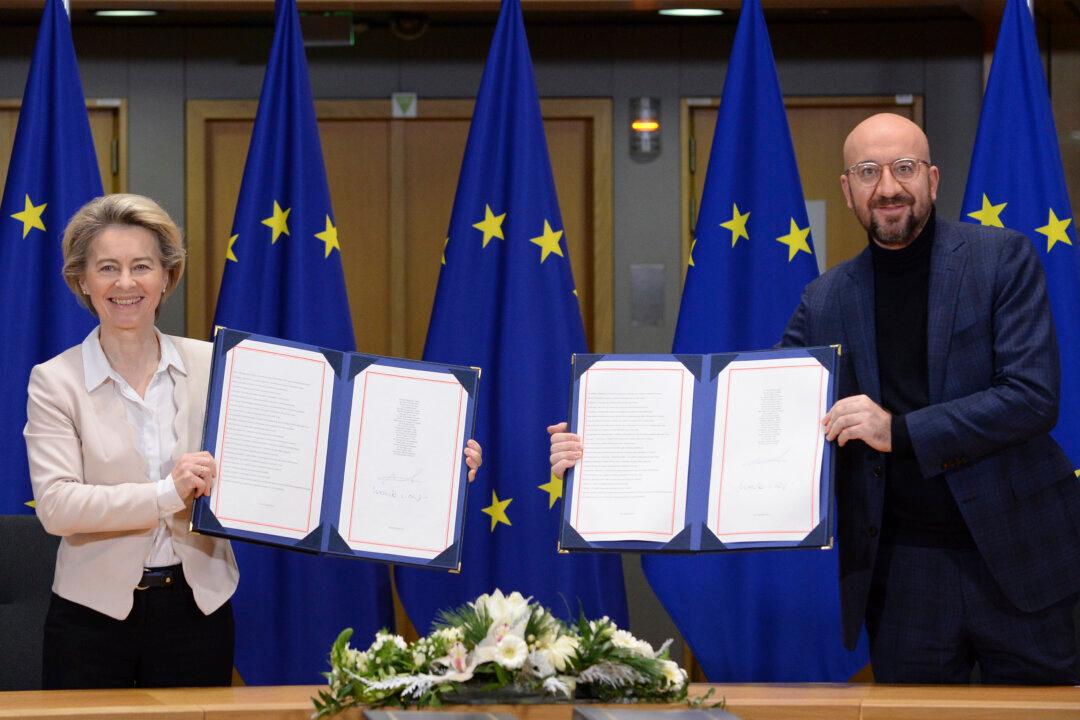Top European Union officials on Wednesday formally signed the EU-UK agreement on post-Brexit trade relations, which will come into effect after the Brexit transition period ends on Dec. 31.
The 1,240-page agreement, reached on Christmas Eve, was signed by European Commission President Ursula von der Leyen and Charles Michel, president of the European Council, an EU body that comprises the heads of state of the EU member countries.





